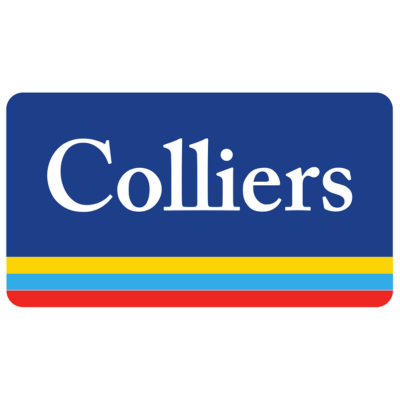Last Updated: March 2024

Commercial rental property insurance is meant to protect commercial property owners from the unique risks posed by commercial tenants, as opposed to residential ones. This type of rental property policy and its protections are geared toward protecting the physical property and its ownership, from the increased risks that come with commercial tenants. From general liability insurance tenant requirements, to claim limits, policy exclusions, and the importance of risk management strategies, commercial landlord policies can be a great tool to protect a commercial investment property.
On This Page
- What is Commercial Rental Property Insurance?
- Commercial Tenant General Liability Insurance Requirement
- What is Covered & Not Covered in Commercial Landlord Insurance
- Average Cost of Commercial Rental Property Insurance
- Commercial Rental Property Insurance Example
- Best Commercial Real Estate Insurance Providers
- Commercial Rental Property Insurance Frequently Asked Questions
What is Commercial Rental Property Insurance?
Commercial landlord insurance, also known as commercial rental property insurance, is a specific type of insurance policy designed to provide financial protection for owners of properties that are leased to businesses. This policy typically covers property damage, liability costs, and loss of rental income due to insured perils. The coverage is specifically tailored to address the distinctive risks associated with commercial properties, such as higher liability exposure and varied tenant operations.
Commercial Tenant General Liability Insurance Requirement
General liability insurance for commercial real estate tenants is a policy that protects businesses from claims involving bodily injuries, property damage, and advertising injuries that may occur on the premises. In many commercial lease agreements, landlords require tenants to hold general liability insurance, and often request to be named as an additional insured on the tenant’s policy. This way, the landlord also gets coverage under the tenant’s policy for claims arising out of the tenant’s use of the property. Commercial tenant general liability insurance protects against a broad range of potential liability scenarios including slips and falls, property damage, and more. In the event that a third party gets injured or there is property damage in the rented space due to the tenant’s operations, the tenant’s general liability insurance would typically respond first.
Pro Tip

Always require commercial tenants to have a general liability insurance policy to protect the landlord from getting entangled in liability claims that are a result of the tenant’s activities or negligence.
What is Covered & Not Covered in Commercial Landlord Insurance
Commercial landlord insurance policies play a pivotal role in safeguarding property owners’ investments, especially when it comes to commercial properties. Understanding what is covered under these policies and what is considered an exclusion is crucial for landlords to mitigate risks associated with their commercial tenants. These policies are often more comprehensive than residential landlord policies due to the unique nature of commercial property risks.
| Typically Covered | Typically Not Covered |
|---|---|
| Damage to the building from insured perils like fire, wind, or vandalism | Normal wear and tear or damage due to deferred maintenance |
| Loss of rental income due to a covered loss making the property uninhabitable | Loss of income due to a tenant breaking their lease or being evicted |
| Liability protection for injuries or damages that occur on the property | Injuries or damages that are intentional or result from gross negligence |
| Some policies may also cover the cost of legal defense in liability cases | Earthquake and flood damage unless additional coverage is purchased |
| Fixtures and fittings such as carpets, blinds and appliances like rental apartment refrigerators | Tenant’s business property |
| Legal expenses and costs related to eviction proceedings | Acts of terrorism or war unless additional coverage is purchased |
Average Cost of Commercial Rental Property Insurance
$1,5001
1Based on $1 million in coverage and a median price between $1,500 and $3,000.
We estimate the average cost of commercial rental property insurance to be $1,500 per year. This cost can vary widely based on the type of property, its location, the value of the building, and the type of tenants. It’s not uncommon for policies to range from $1,000 to $3,000 per year for $1 million of coverage. Keep in mind, commercial properties rated as Class C or lower, or those with high-risk business tenants may cost significantly more to insure.
Commercial Rental Property Insurance Example

Let’s visualize an example where you’re a landlord who leases a commercial space to a retail shop. One day, a customer visiting the store trips over an improperly placed display stand and injures themselves, resulting in a lawsuit against the shop. In this case, the shop’s commercial general liability insurance, which they should have as part of their lease agreement, would typically cover the lawsuit expenses, protecting both the tenant and you as the landlord. However, if it’s discovered that the fall occurred due to a structural issue with the building, such as a faulty staircase, your commercial rental property insurance would step in. It would cover the legal expenses and any settlement costs, up to your policy limits.
The #1 Rental Property Newsletter
Once a month, we send out an exclusive Rental Property Market Update with top stories, current mortgage rates, building products, and more. No spam and unsubscribe anytime.

Best Commercial Real Estate Insurance Providers
Commercial Rental Property Insurance Frequently Asked Questions
What is the Difference Between Commercial Insurance and Residential Insurance?
Commercial rental property insurance primarily caters to businesses and covers properties like office building, retail spaces, or industrial rental properties, while residential landlord insurance applies to properties such as houses, apartments, or condos rented for living purposes. They primarily differ in risk coverage, as commercial properties may face unique risks like business interruption or public liability which residential properties do not. The calculation of premiums also varies, as commercial insurance often considers factors like the nature of the tenant’s business.
Is Tenant or Landlord Responsible for Paying Insurance on Commercial Property?
Typically, the responsibility for insurance in a commercial lease is outlined in the lease agreement itself. In most cases, the landlord maintains insurance for the structure and common areas, while the tenant is responsible for insuring their personal property, improvements, and often for carrying liability insurance. An exception to this would be a triple net (NNN) lease where the tenant pays for property insurance. This liability coverage protects the tenant against claims for bodily injury or property damage occurring within their leased premises.
Why is Commercial Tenant General Liability Insurance a Requirement by Commercial Property Landlords?
Commercial landlords commonly mandate general liability insurance in the lease agreement for tenants to minimize financial risk from potential lawsuits. If an incident occurs on the rented premises, the tenant’s policy typically responds first, protecting the landlord’s insurance from immediate claim. It also safeguards the landlord from liability for the tenant’s activities or negligence, providing a financial buffer. In addition, having the landlord named as an additional insured extends the coverage to them for claims arising from the tenant’s use of the property.
More Rental Real Estate Insurance
About the Author

Ryan Nelson
I’m an investor, real estate developer, and property manager with hands-on experience in all types of real estate from single family homes up to hundreds of thousands of square feet of commercial real estate. RentalRealEstate is my mission to create the ultimate real estate investor platform for expert resources, reviews and tools. Learn more about my story.
Disclaimer: The information provided on this website does not, and is not intended to, constitute legal and/or financial advice. As such, all information, content, and materials available on this site are for general informational purposes only. Please review our Editorial Standards for more info.










